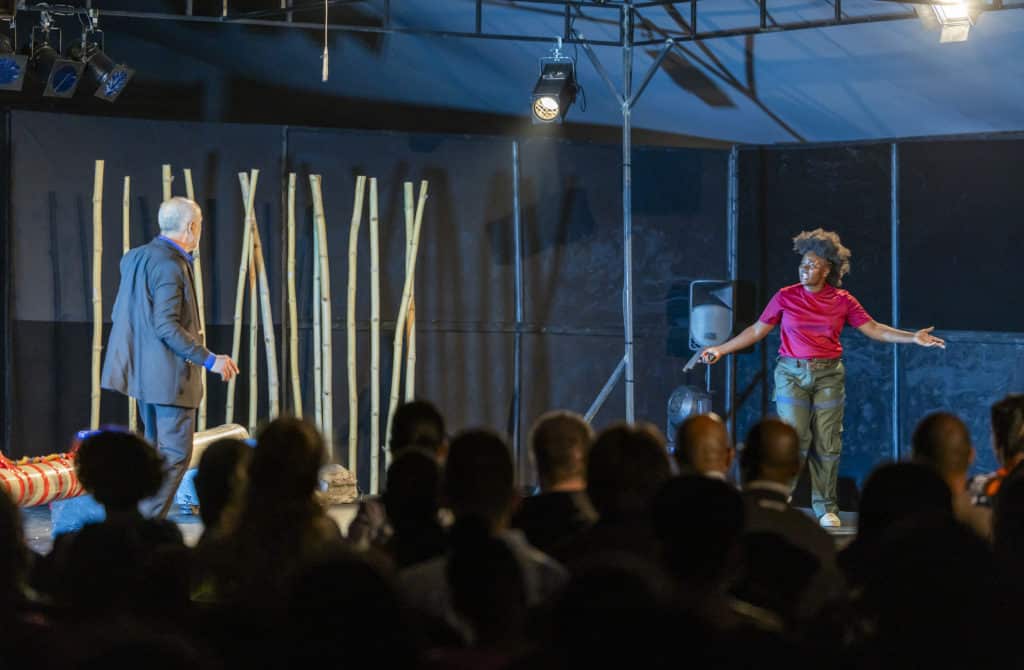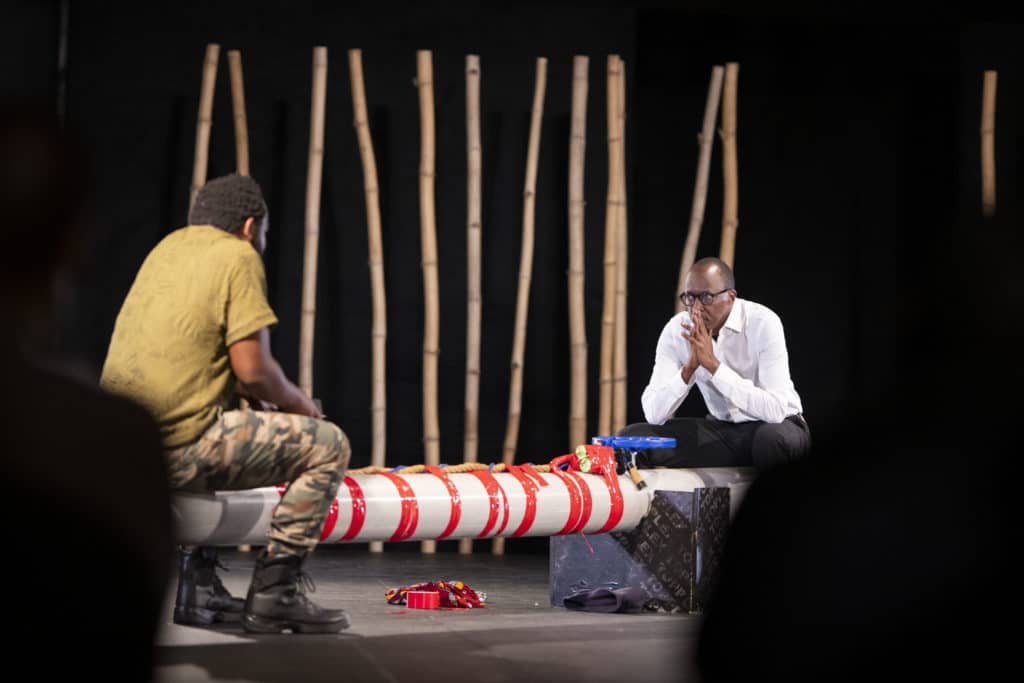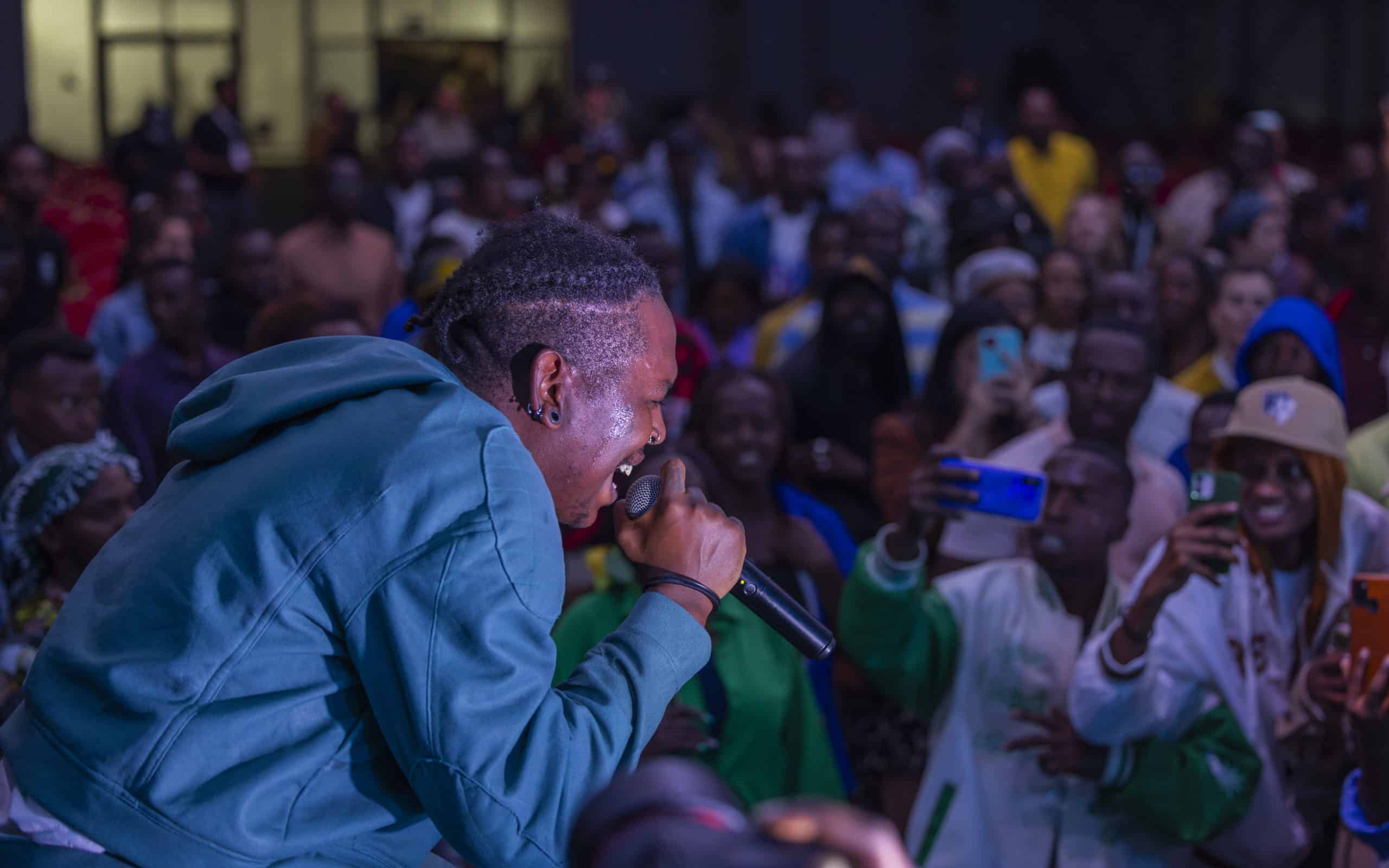Rwanda has rightly earned the nickname of “a land of a thousand hills and a thousand and one opportunities” because of the country’s impressive economic progress. However, after the recently-concluded celebration of arts which was the inaugural Kigali Triennial festival, you can now add culture to the list of things the country offers for tourists and investors.
From the start, the Rwanda Arts Initiative team, a cultural NGO created and managed by Rwandan artists, decided to think very big with a particularly ambitious project leaving out no form of art from the 10-day program. The scale of the ambition was in keeping with the ambition of the country, with organizers planning to feature: theater, cinema, music, plastic arts, fashion, culinary arts, art technology, dance, literature, musical, and readings.
Working in partnership with the city of Kigali and the Ministry in charge of youth and the arts, the Kigali Triennial was born, and the dates were set for the first edition: February 16 to 25, 2024. When the time came, more than 200 artists and technicians from 25 countries gathered to exhibit more than 60 shows, screenings and performances across 10 different locations in the Rwandan capital and with two special performances taking place outside the city.

“The triennial is the result of a dialogue between the artistic community, the city of Kigali and the ministry of youth and the arts. It turned out that there was a Rwandan youth who drives cultural life in Kigali and Rwanda, a youth who invented their own artistic codes,” explained Rwandan author, playwright and artistic director for the event, Dorcy Rugamba.
“In 2023, Rwanda Arts Initiative had presented more than a hundred Rwandan artists to the international scene. This year, we wanted to invite the world of arts and professionals to discover this country and its transformation, by highlighting Kigali as an artistic and cosmopolitan hub where artists meet.”
Beyond the performances, the Triennial was designed to also be a space for knowledge exchange through forums featuring experts from the arts and culture space. The topics covered included copyright and the protection of intellectual property in Africa, the importance of spaces dedicated to the creation and dissemination of the arts as well as the development dynamics of the African music industry.

Masterclasses were also given by artists and professionals in their respective fields. But, perhaps above all other aspects that this artistic carnival offered, the Triennial acted as a shop window for artists to show their wares to the world. Dozens of professionals, producers and distributors were invited to Kigali for this event and the majority of shows and works presented will soon begin to tour around the world as confirmed by Rugamba at the end of the Triennial.
Singer and activist for Afroculture Khadja Nin, who was one of the curators of the music category, explained that the event represents the fulfillment of a dream shared by many generations of African artists. “I said ‘yes’ to this project because it goes beyond simple artistic creation, it is much more than that, it is an African market for artistic works; a few years ago we could not even imagine such platforms in Africa. Art must be seen as an integral part of the economic life of a country; and I am happy that certain African states like Rwanda are starting to give it pride of place as much as sport and other areas,” she said.
This value of art is not only in entertainment as recognized by Sandrine Umutoni, Rwanda’s Secretary of State at the Ministry of Youth and the Arts. “The Government of Rwanda recognizes the vital role of the arts in the development of youth and actively supports artistic initiatives such as the Kigali Triennial. In addition to strengthening our national unity, art acts as a catalyst for job creation, economic prosperity and overall enrichment of the cultural heritage of our society.”
Between the street shows of Cameroonian dancer Zora Snake and Congolese performer Eddy Ekete in the popular neighborhoods of Kigali, the performances and artistic installations in the paradise island of Rubavu or at the Kinyugunyugu artistic creation residence of Cédric Mizero in Musanze, the theatrical performances, the songs, the dances, the poems of Rwandan artist Lisette Ma Neza, the haute couture of South Africa-based fashion designer Nyambo MasaMara or the choreographies of Alesandra Seutin from the École des Sables in Dakar, Senegal, history will remember that for 10 days in February 2024, in Kigali, Africa spoke the same language, the language of art.
And Rwanda will now rightly be seen as a new cultural destination for tourists and those wanting to invest in the creative arts.
DISCLAIMER: Brand Voice is a paid program. Articles appearing in this section have been commercially supported.
